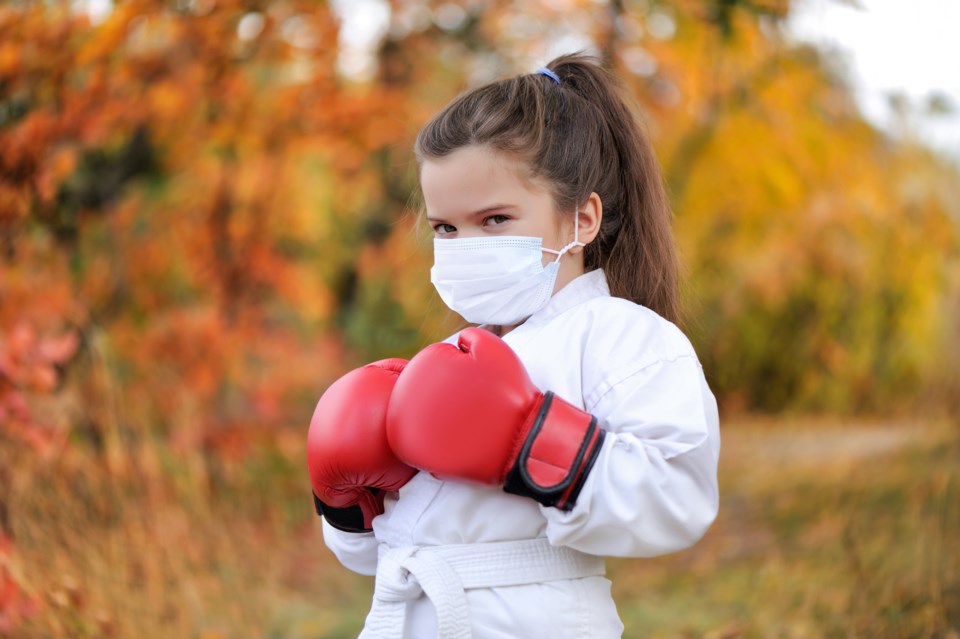Lay off the birthday parties and sleepovers – and maybe consider cutting back on your children’s extracurricular activities.
That was some of the advice for parents from provincial health officer Dr. Bonnie Henry at a media briefing on Thursday, Nov. 5. COVID-19 numbers continue to soar in B.C., with 425 new cases reported yesterday alone and 7,519 people now under active public health monitoring for potential exposure to the virus.
“As we look to these recent numbers, we’re all concerned, and we’re watching things closely,” Henry said. “We did anticipate an increase as we moved indoors into the cooler weather, but it is incredibly important that we manage this increase effectively, and I am asking once again for your help to slow the spread of this virus in B.C. so that we can keep our schools, our businesses and our communities open and safe.”
Henry issued a plea to parents to say no to such things as birthday parties involving children outside their own household, or sleepovers with children’s classmates.
“I know this can be difficult and challenging for children, but I ask that you look to celebrate in smaller, other, safer ways right now,” she said.
Henry also suggested families pare down their extracurricular activities in order to reduce the risk of coming into contact with COVID-19.
“These are tough decisions for this year, for this COVID time, where we have to say, well, what (is) the one group that we want to be involved with outside of our school cohort or our school learning group so that we’re not exposing our family and our community to increased risk,” she said.
But Henry also noted that those decisions will vary from place to place and from household to household.
“It depends. It depends on where I live in the province. It depends how many people in my karate class are my siblings. It depends on if I live in a large family with elders or I have regular contact with seniors in my life,” she said.
“There are many different variables, but I do say in general, this is a year where we need to consider not expanding our bubbles and doing those things that we might usually do.”
Henry said that’s particularly true of activities that take place in indoor settings, where the probability of transmission is higher.
Her comments came against the backdrop of the much-publicized outbreak stemming from a dance school in Chilliwack, a so-called “superspreader event” that has seen 38 people test positive for COVID-19.
But Henry stopped short of telling parents to stop extracurricular activities altogether.
“We all know how valuable it is for physical exercise, to have music and arts in our lives, how that enriches our lives and keeps us healthy in other ways,” she said. “We need to make choices this year about which of those are important for us right now and recognize that this is not forever.”
Henry said every person’s individual actions, small and big, have an impact on COVID-19 numbers, and everyone in the province can help by continuing to focus on staying local and keeping their social contacts small.
“By staying small, we can ensure that those things that are important to our well-being can continue. If you need some encouragement, look no further than the children and teens who have so quickly adapted to these protective measures, particularly in schools,” she said. “They have learned that this is something you can adapt to. You can play sports safely; you can dress up at Halloween and have fun outside in small groups, or with your family at home; and young people have shown us that they are adaptable and can get through this storm.
“We need to use that energy and use that ability, that resilience that we see in young people, to make sure we can do this as a community as well.”



